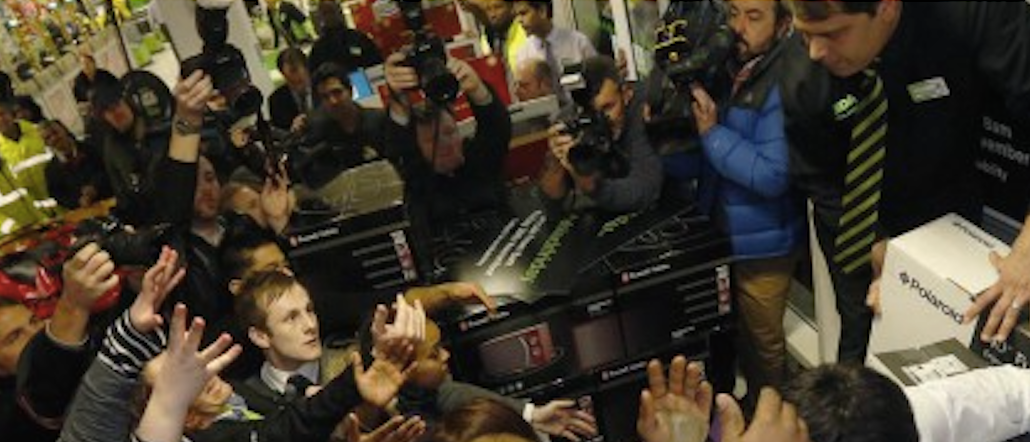Secure your place at the Digiday Media Buying Summit in Nashville, March 2-4

After arriving in the U.K. just three years ago, Black Friday seems to have outstayed its welcome in Britain: Shoppers and retailers alike are not embracing the peculiarly American post-Thanksgiving shopping melee.
Even the chain that imported Black Friday from the U.S. won’t be participating this year: Supermarket and retail powerhouse Asda brought the concept over from its American parent store Walmart. In 2014, despite high sales in electrical goods, the sales of its core food business fell during Black Friday, according to chief executive Andy Clarke.
Shoppers also aren’t keen. Audience-insight platform Instantly polled 1,500 U.K. consumers and found that 36 percent do not think that Black Friday is a good concept. A full 84 percent said that it will have no effect on their Christmas shopping, with only 18 percent saying that they intend to take advantage of the sales on Nov. 27.
Although some estimates predict sales will reach £1.1 billion ($1.7 billion) on Friday, slashing prices for one day has a negative impact on profit margins for the rest of the season.
“The big problem is that the majority of retailers aren’t discounting ordinary merchandise but bringing in special stock,” said Richard Perks, director of retail research at analyst firm Mintel. “The story so far is that it’s been successful in sales but unsuccessful in profit. The strategy now has to be one of damage limitation.”
This year, Asda has gathered feedback from its customers and found that many would rather see discounts across the Christmas period rather than being “held hostage” by the one day of sales. As such, Asda is reducing prices by £26 million ($39 million) and extending the sales period.
Rather than taking part in Black Friday, clothes retailer Fat Face is instead donating 10 percent of its net profits during the season to charity and will begin its festive-season sales on Boxing Day. Clothing retailer White Stuff will be giving customers gift cards for future purchases, according to the Telegraph.
Other retailers are taking a modified approach, without shunning it entirely. Tesco is opening at 5 a.m. rather than starting its sale at midnight, a gesture that signals it is trying to downplay Black Friday, suggests Perks. Andy Street, John Lewis managing director, commented earlier this year on the “collective madness” that has retailers “lining up to give our product away” four weeks before Christmas.
Last year’s Black Friday sales led to violence in British shopping aisles. The chaos was severe enough that members of parliament and police departments have been urging store managers to reconsider the one-day sale. Online, the experience has also been poor, even for the established retailers, with Tesco, John Lewis, Currys and Argos sites all crashing.
“Black Friday exists in the States for a good reason,” said Perks. “In the U.K., it’s just a normal working day; it doesn’t have any resonance or any logic in this country.”
Black Friday fatigue is showing signs of setting in even in America. Outdoor retailer REI made hay out of its decision to close its store on Black Friday and instead urge its employees and customers to “#OptOutside.”
Image via Reuters
More in Marketing

Future of Marketing Briefing: AI’s branding problem is why marketers keep it off the label
The reputational downside is clearer than the branding upside, which makes discretion the safer strategy.

While holdcos build ‘death stars of content,’ indie creative agencies take alternative routes
Indie agencies and the holding company sector were once bound together. The Super Bowl and WPP’s latest remodeling plans show they’re heading in different directions.

How Boll & Branch leverages AI for operational and creative tasks
Boll & Branch first and foremost uses AI to manage workflows across teams.





